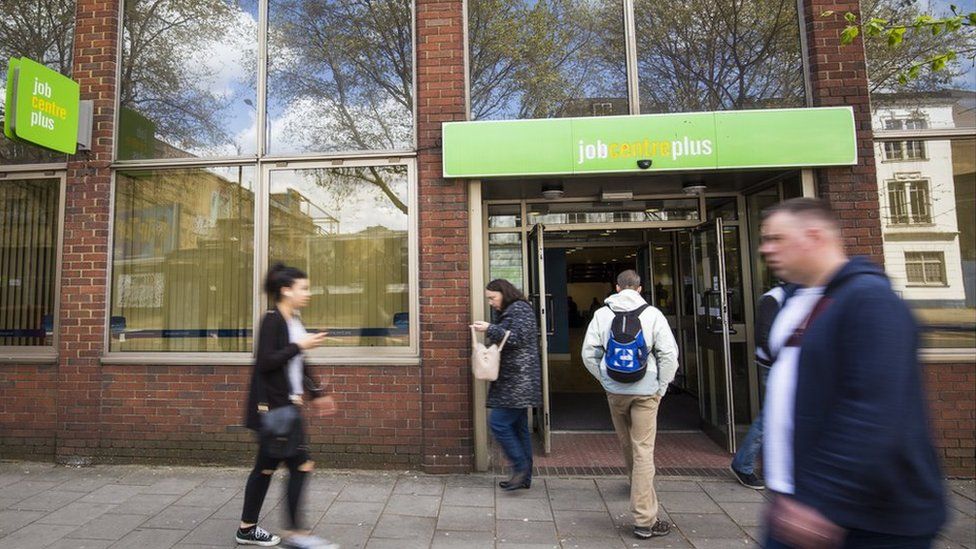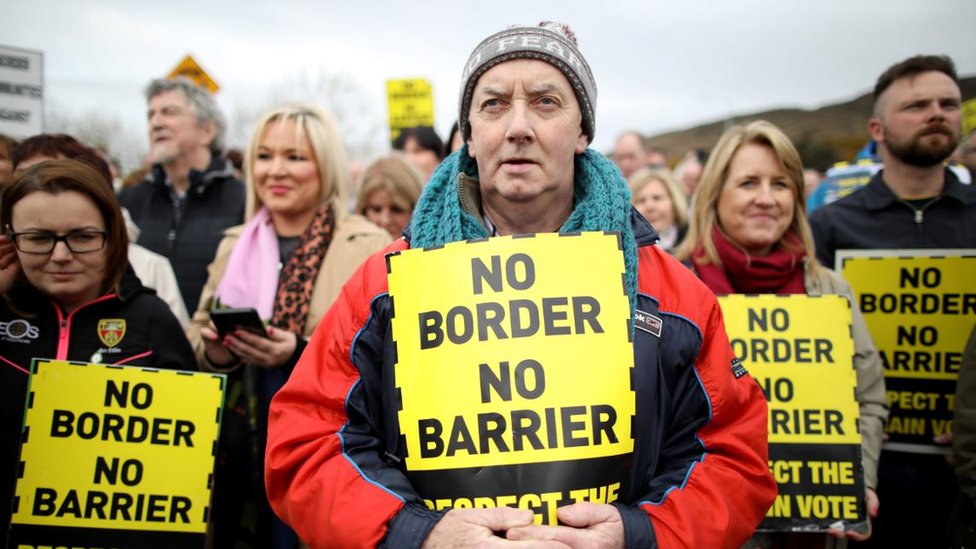
image copyrightGetty Images
Labour and some Conservative MPs are calling on the government to keep a temporary increase to universal credit.
The benefits payment was boosted by £20 a week at the start of the pandemic to help people who were struggling to cope financially.
The increase is due to stop at the end of March.
What was the increase and why is it under review?
Universal credit is claimed by more than 5.5 million households. The payment was increased by £20 a week in April 2020 as part of Chancellor Rishi Sunak’s early Covid economic response.
The government says the boost was only designed as a temporary response to help those unable to work or struggling due to the lockdown.
The Joseph Rowntree Foundation – a charity which researches poverty – says millions of households face an income loss equivalent to £1,040 a year, and that 500,000 more people will be driven into poverty.
The government says it has made £280bn available to the most vulnerable families, and that additional help will be set out in the March Budget.
-
PM pressed to keep £20 benefit increase ‘lifeline’
- ‘Money is tight’ – Living on benefits in lockdown
What is universal credit?
Universal credit is a benefit for working-age people, which was introduced to replace six benefits and merge them into one payment. The old ones are:
- income support
- income-based jobseeker’s allowance (except for some people with severe disabilities)
- income-related employment and support allowance
- housing benefit
- child tax credit
- working tax credit
Most people who would have made a new claim for these benefits, must now make one for universal credit, which was designed to make claiming benefits simpler.
Making a claim for universal credit stops payment of any existing legacy benefits, so it is worth getting advice before doing so.
You can claim on the phone – or online.
A single universal credit payment is paid directly into claimants’ bank accounts. It is paid every month in England and Wales, but there is the option of payment every two weeks in Scotland and Northern Ireland.
It can be claimed when you are in or out of work.
Universal credit may not be appropriate or available for everyone. Claiming it can affect other benefits, and it is vital to get some advice – available for free – before applying.
What are the concerns?
Universal credit has been the source of considerable debate from the start.
Firstly, it is complicated to work out exactly what you might receive. Some people, such as those with £16,000 or more in savings, will not be eligible at all.
Others may find what they receive depends on their circumstances, including any income their family has, as well as housing and childcare costs.
One contentious issue is that it usually takes five weeks from the date of claiming to receiving a first payment, although claimants may be able to get an advance loan.
An application for universal credit may put a stop to any tax credits you receive, even if it proves to be unsuccessful.
You may be able to claim a reduction in council tax when on universal credit, and get help with childcare costs. There is also support to pay the rent, which works in different ways across the UK. In time, there may also be assistance in paying the mortgage, although there are some strict criteria involved.
What other benefits are still available?
The main benefit for anyone losing their job after a period in work is new-style jobseeker’s allowance (JSA).
This is worth £58.90 a week, if you are under 25, or £74.35 a week if you are 25 or over.
You can get this for up to six months and it will be paid into your bank, building society, or credit union account every two weeks. Unlike universal credit, your partner’s or spouse’s income will not affect your claim.
You may be able to claim new-style JSA as well as universal credit.
Where can I go for help?
There is a host of free guidance and advice available, including:
What if I can’t face doing this right now?
Extensive research has revealed the links between financial difficulties and mental health issues.
Support is available for both, and research also shows that ignoring any serious financial matters could make both factors worse.
Related Topics
Source link

